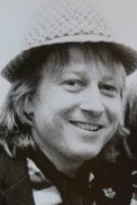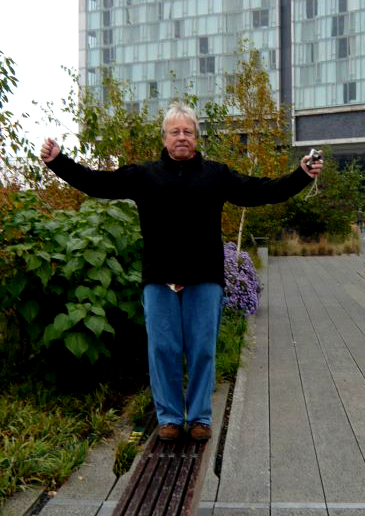 ‘Pinball wizard’ Kellogs, on the
other hand, insisted that his wages were “... four Mars bars a week and as much
Coca Cola as you could drink!”
‘Pinball wizard’ Kellogs, on the
other hand, insisted that his wages were “... four Mars bars a week and as much
Coca Cola as you could drink!”
Procol HarumBeyond
|
|
|
PH on stage | PH on record | PH in print | BtP features | What's new | Interact with BtP | For sale | Site search | Home |
|
Mod Days
Southend’s Shades club had a popular ‘regular’ in 1963 in the shape of John
‘Kellogs’ Kalinowski. Kellogs fell in with The Paramounts and became their
roadie, spending almost four years with the band, embarking on a
behind-the-scenes career that would sustain him for almost half a century.
“Robin Trower offered Kellogs the job as roadie for £4 a week,” says Gary
Brooker. “People always had a roadie, even before the word was invented: someone
with a van who would drive the group.”
 ‘Pinball wizard’ Kellogs, on the
other hand, insisted that his wages were “... four Mars bars a week and as much
Coca Cola as you could drink!”
‘Pinball wizard’ Kellogs, on the
other hand, insisted that his wages were “... four Mars bars a week and as much
Coca Cola as you could drink!”
By 5 September 1965 The Paramounts had cut their sixth and final EMI Parlophone single, a cover of PF Sloan’s You Never Had It So Good. The single was admired by The Beatles' NEMS management team, who were now handling The Paramounts’ affairs. This led to them being given a place on the bill for two Beatle shows at the Finsbury Park Astoria, London, and the Capitol Theatre, Cardiff, in December 1965.
“The Moody Blues closed the first half of the show,” remembered Kellogs. “The Paramounts backed Beryl Marsden from Liverpool, as well as Steve Aldo from Merseyside. The Paramounts were also given a slot where they could play just two songs. They opened the show each night. Being the ‘opening act’ you had the dressing room right at the top of the building. And it was a long long slog climbing the flights of stairs to the top of the Finsbury Park Astoria. But it was thrilling to be on tour with The Beatles. Nobody heard anything when The Beatles hit the stage, only screaming … Before the show I remember that George Harrison – the sweetest man – came all the way up the stairs to the attic to see us. He brought us a gift: a little plastic portable Dansette record player with a blues record by Albert King and a large jazz cigarette for us all to share. I was only 19. Thrilling days!”
The following night, as if descending in slow motion into a vast cavern filled with a thousand screaming seagulls, The Paramounts hit the stage of Cardiff's Capitol Cinema opening for The Beatles on what was to be their last British concert tour. It marked the end of Beatlemania, the beginning of a new chapter in The Paramounts’ career, and the dawn of a new phase in British pop.
Psychedelic
Days
DJ
and impresario Guy Stevens teamed up Paramount singer and piano-man Gary Brooker
with lyric writer Keith Reid. No one seems to be able to remember the precise
date that Stevens actually introduced Brooker to Reid, but Kellogs recalled the
moment exactly. “It was a meeting of minds. You just knew that this would lead
to something ...”
“Guy said, ‘Oh this is Keith Reid, he writes words,'” recalled Brooker. “‘Gary, you write music’. I said, ‘I don’t!’ He said, ‘Well you could!’ Anyway, Keith gave me this big envelope full of words, which I took away.”
Reid: “Guy Stevens was the hippest guy in London at this time. One of his ideas was that maybe I could get together with The Paramounts and write songs with Gary. But The Paramounts split up soon afterwards. So we decided to form a band. And the band was soon to be named Procol Harum.”
Six days before Procol Harum’s début disc A Whiter Shade of Pale went to the Number 1 slot, Paul McCartney and George Harrison took their partners to watch Procol make their theatrical début at London’s Saville Theatre in Shaftesbury Avenue (4 June 1967 ) where they supported The Jimi Hendrix Experience. Kellogs recalled that he offered his services as Procol’s roadie. “I knew I had to make Procol’s sound every bit as loud as Jimi’s guitar, so I hired a couple of extra Hammond Organ ‘Leslie speakers’ and pumped the sound back through these. The sound was overwhelming. The band was impressed and I became Procol’s roadie-cum-soundman from that day onwards!”
Progressive
Days
A Salty Dog is undoubtedly Procol’s tour de force and it seemed that
everybody connected with it received some sort of recognition, even the humble
roadie.
 Kellogs: “I remember standing on a chair in the studio in Abbey Road; I was up
close against a microphone to play these two notes on this Bosun’s Pipe on A
Salty Dog. When the record came out in the summer of 1969, I got a credit,
‘Kellogs – Bosun’s Whistle and Refreshments’. When we went to America, a lot of
people would come up to me and say, ‘Hey man, are you Kellogs with the
refreshments? Hey, I know what you mean by ‘refreshments’ man. Have some of my
shit!’ It served me in very good stead. I never lacked for the essential herbs
of the day ... And all due to that little credit ... In truth what I’d really
done was go across the road from Abbey Road Studios to a nearby stall to get the
band cups of tea and plates of egg'n'chips ...’
Kellogs: “I remember standing on a chair in the studio in Abbey Road; I was up
close against a microphone to play these two notes on this Bosun’s Pipe on A
Salty Dog. When the record came out in the summer of 1969, I got a credit,
‘Kellogs – Bosun’s Whistle and Refreshments’. When we went to America, a lot of
people would come up to me and say, ‘Hey man, are you Kellogs with the
refreshments? Hey, I know what you mean by ‘refreshments’ man. Have some of my
shit!’ It served me in very good stead. I never lacked for the essential herbs
of the day ... And all due to that little credit ... In truth what I’d really
done was go across the road from Abbey Road Studios to a nearby stall to get the
band cups of tea and plates of egg'n'chips ...’
Procol’s first live collaboration with an orchestra took place at the annual Stratford Festival in Ontario, Canada, in 1969.
Kellogs: “The orchestra played on a few selected numbers: In Held 'Twas In I and A Salty Dog. It was in the round and the band played at the bottom in a pit with the audience all around us. In those days bands didn’t carry sound systems around. We unusually had a sound system, because we had these strings. And probably because it was a test gig – something innovative that had never been done before – a rock band and an orchestra playing live together. This was the first gig of its kind. Pioneering! Deep Purple also did do something similar, but that was sometime later.”
“Robin Trower
hated it, because we had to play very quietly”, recalled Brooker.
Kellogs: “I’d been up for four days straight. I’d probably driven there from
Detroit. So I was very tired. Suddenly at a crucial moment in the show there
was no live vocal. So I went into this pit, testing every lead, cable, and canon
plug to find out where the problem was, right in the middle of the show. By a
process of elimination nothing worked! I took my woolly hat off and threw
it on the ground in frustration, and I got a round of applause from the
audience. The problem was resolved when Ronnie Lyons, our tour manager and
sometimes sound mixer, suddenly remembered to turn up the vocalist’s sound pot
[on the mixer desk]. I still have the woolly hat!”
22 Years
Later
Procol Harum reformed after a fouteen-year sabbatical in 1991. Kellogs turned up
at a press show in New York for the live début of the Procol reunion album
The Prodigal Stranger and offered his services as manager, having previously
managed Leon Russell, Stiff Records package tours, and artistes as diverse as
Madness, Van Morrison, The Kinks and Nick Lowe (whom he tour-managed). Old
friend Kellogs was hired there and then. Several US tours ensued as well as
tours of mainland Europe.
Procol took another three-year sabbatical from 1997 until 2000 when Kellogs left to pursue an old interest of licensing r'n'r merchandising, running his own tee-shirt company, Fezborough Ltd.
A true ‘chap’, as author-songwriter Will Birch described him today, Kellogs was universally liked. He was decent and honest in a business that often negates that stance. Testimonials have come in from musicians, managers, producers, and fans with a heartfelt sadness at his passing. He will be remembered with affection.
(c) Henry Scott-Irvine - 27 February 2013. No section of the article may be reproduced anywhere other than 'Beyond the Pale' without the express written permission of the author and Omnibus Press Ltd. Extracts from the 2012 biography Procol Harum & The Ghosts of 'A Whiter Shade of Pale', published by Omnibus Press, appear here in this tribute.
|
PH on stage | PH on record | PH in print | BtP features | What's new | Interact with BtP | For sale | Site search | Home |